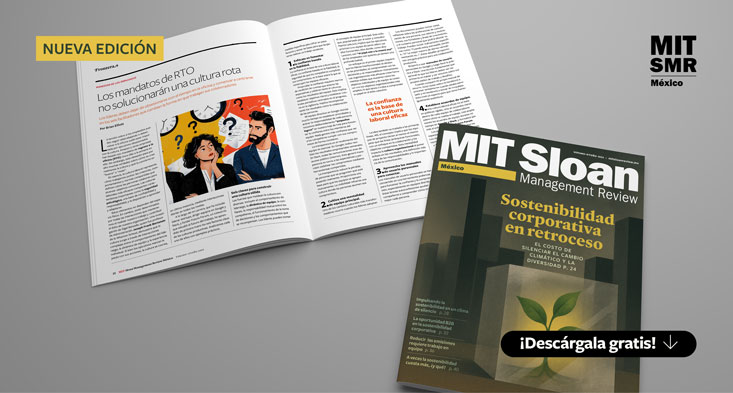We’re excited to share some of the things that can make giving feedback at work a complete failure.
Although the vast majority of companies these days have “feedback” in their lexicon, it seems like most of the time giving feedback is just something that some higher power says you have to do, one more box you have to tick. Even worse, giving and receiving feedback is often seen as a chore that people swear they love doing but secretly dread.
Fuckup Nights had its first team-wide feedback session a few years ago, and back then we made the conscious decision to tweak some of the practices that the so-called “experts” on the internet recommend.
Our mission? To own the session, make it personal and valuable, and incorporate our FUN, Fuckup style. We write FUN in all caps because it’s also the Fuckup Nights acronym. But of course, many things can go wrong while giving feedback to a colleague.
Based on this experience, we’re excited to share some of the things that can make giving feedback at work a complete failure.
6 common leadership mistakes when overcoming failure
1. The wrong feedback setup
One of the most common mistakes while giving feedback is doing it in a rush to avoid the uncomfortable feelings that may arise, and for good reasons. Feedback sessions are inherently difficult conversations. It’s crucial to avoid setting a date and time that may not be convenient for any of the people involved, especially when the team has a pressing deadline.
How we solved it:
We chose a date that works best for everyone and booked enough time for the feedback session. During the team session, each team member was responsible for giving feedback to another member of the group, typically someone outside of their immediate area. For example, someone from the communications team would give feedback to someone on the operations team.
The logic behind this setup was that a team member from a different area might be able to identify areas of opportunity that someone from the same team might not be able to see because they’re in the weeds.
We approached it almost like a “secret Santa” activity – no one knew who would be giving them feedback, and after each person received feedback, it was their turn to give it to someone else. This created an opportunity for everyone on the team to both give and receive feedback.
2. The feedback sandwich
This technique is used to sugarcoat the truth or soften the punch of much-needed constructive feedback. While the mental health of the employees is fundamental to the organizational culture, it’s important to be as clear as possible when giving feedback. Sandwiching may sound like.
“Your enthusiasm is contagious, some colleagues find your visits to their desks and witty banter distracting, but other than that you lift everyone’s spirits”. Some colleagues could realize that they are distracting others, but most employees might just take it as “OK, some people don’t like it but it’s no big deal”.
How we solved it:
Think of this as a side dish instead of a sandwich. We used a formula that combined both positive and constructive feedback. First, the giver was asked to share one thing that the receiver is good at or something about them that is inspiring or amazing. Then, the giver shared one area the receiver could improve – to give valuable and actionable advice.
The point of this exercise wasn’t just to draw attention to opportunities for improvement but to provide a resource that could help the receiver make positive changes.This could take the form of a book recommendation, a potentially helpfu
l habit, or some other practice that could lead to improvement. Our thought behind this requirement was if you’re only describing a problem, you’re not being instrumental.
3 best practices to innovate while failing forward in 2023
3. Therapy session
This usually happens when the manager or colleague knows personal information about the individual to whom they’re giving the feedback. People might say something like “I see you didn’t have the same number of sales calls as last month, is it because you’re going through a divorce?”
That can come across as intrusive and rude. It’s better to ask differently, for instance: “the number of sales calls is lower than last month, why do you think that happened? Is there something we can work on together to improve those numbers?”
How we solved it:
We believe that work should be FUN and personal. No subject is out of bounds, we talk about our personal lives, fears, dreams, roles, crazy ideas, and beliefs.
It’s about opening up and trusting the people we work with. Getting to know people in a more personal way through vulnerability, can give team members a better understanding of their colleagues, knowing their moods, likes and dislikes, strengths and weaknesses to create unspoken habits and rules for mutual understanding and better communication.
That said, we don’t use that information against each other or assume why people may be struggling to meet deadlines or goals, instead, we approach this from a place of curiosity and empathy.
4. Letting emotions take the wheel
While knowing a colleague’s life situation could help you empathize with them, it could be difficult to balance your wording while giving feedback.
Some can feel very close to their colleague or employee, and they might say things like “You acted immature with the client, we were rooting for you and we’re disappointed”.
Obviously, that’s not a professional way to communicate the areas of improvement you identified in a given situation. Something like:
“I know you were upset about the way the client spoke and behaved during the meeting. I understand and appreciate that you really care about this, yet we need to communicate professionally with the client about these matters”
How we solved it:
At Fuckup Inc, we believe in sharing casual spaces that change our preconceived notions about work and personal relationships. The paradigm that limits the full potential behind making work FUN and personal still exists, buffering and misdirecting our efforts to create genuinely safe and human spaces.
Take that chance if you can raise your hand to improve your space. These opportunities can enhance our personal growth by finding talents and passions, better our environments, and help us make work meaningful for our whole team.
Organizational cultures need to be evolving and employee-led, as opposed to a set of monolithic beliefs determined by executives. Adding to a culture –instead of fitting into a culture– encourages employees to take on a role of advocacy where people provide constructive criticism, thus building resilience and innovation.
Los errores más comunes al gestionar fracasos en el trabajo
Our insights regarding feedback, innovation, and psychological safety at work
If given the choice -at any age-, would you rather work in a personable and friendly work atmosphere or in one where you need to pretend to be someone you’re not?
This human behavior is something that even NASA scientists are interested in. While exploring and researching for future isolating missions to space, they realized that close and experienced stressed teams made fewer errors than fresh but emotionally detached teams.
They recognize the importance of social interactions and even the role of a “clown” in the team. We’re certainly not rocket scientists (yet), but we understand the importance of friendly relationships at work.
According to The Failure Institute, resilient teams have strong connections between themselves, often meeting with colleagues outside of their work. This also introduces an element of “play” to the workplace, which fosters creativity and positive emotions among employees, which translates into feelings of psychological safety at work.
When feelings of closeness exist within a team, it’s more likely that people will speak up, ask difficult questions, share bad news, and report early warnings: all these are key practices for facing and preventing mistakes (failure management), but they also foster shared accountability. Feelings of connectedness also enhance productivity, candor, transparency, and even risk-taking within a team.
At Fuckup Inc, four of our organizational values are fundamental when giving feedback: “be 1% better each day,” “have the difficult conversations,” and always, always “act from a place of love.” Connecting these core values to the feedback exercise helped guide both the communication style and how it was delivered.
No one was upset about the feedback they received – nobody felt called out or put on the spot. Instead, there was a shared sense of empathy and respect, along with the mutual understanding that the person giving feedback was focused on uplifting and supporting their teammates while also looking for ways to improve in the process.
CONTACT
Facebook: Fuckup Nights
Instagram: Fuckup Nights
Youtube: Fuckup Nights
References (3)

Fuckup Nights
Vivimos una vida sin filtros. Contamos historias de fracaso Fuckup Nights es un movimiento global y una serie de eventos donde se comparten historias de fracasos. Cada mes, en eventos en todo el mundo, conseguimos que tres o cuatro personas se enfrenten a una sala llena de extraños para compartir su propia cagada. Historias de negocios que quiebran, acuerdos de socios que se pelean, productos que deben retirarse del mercado, contamos todo.y recibe contenido exclusivo






